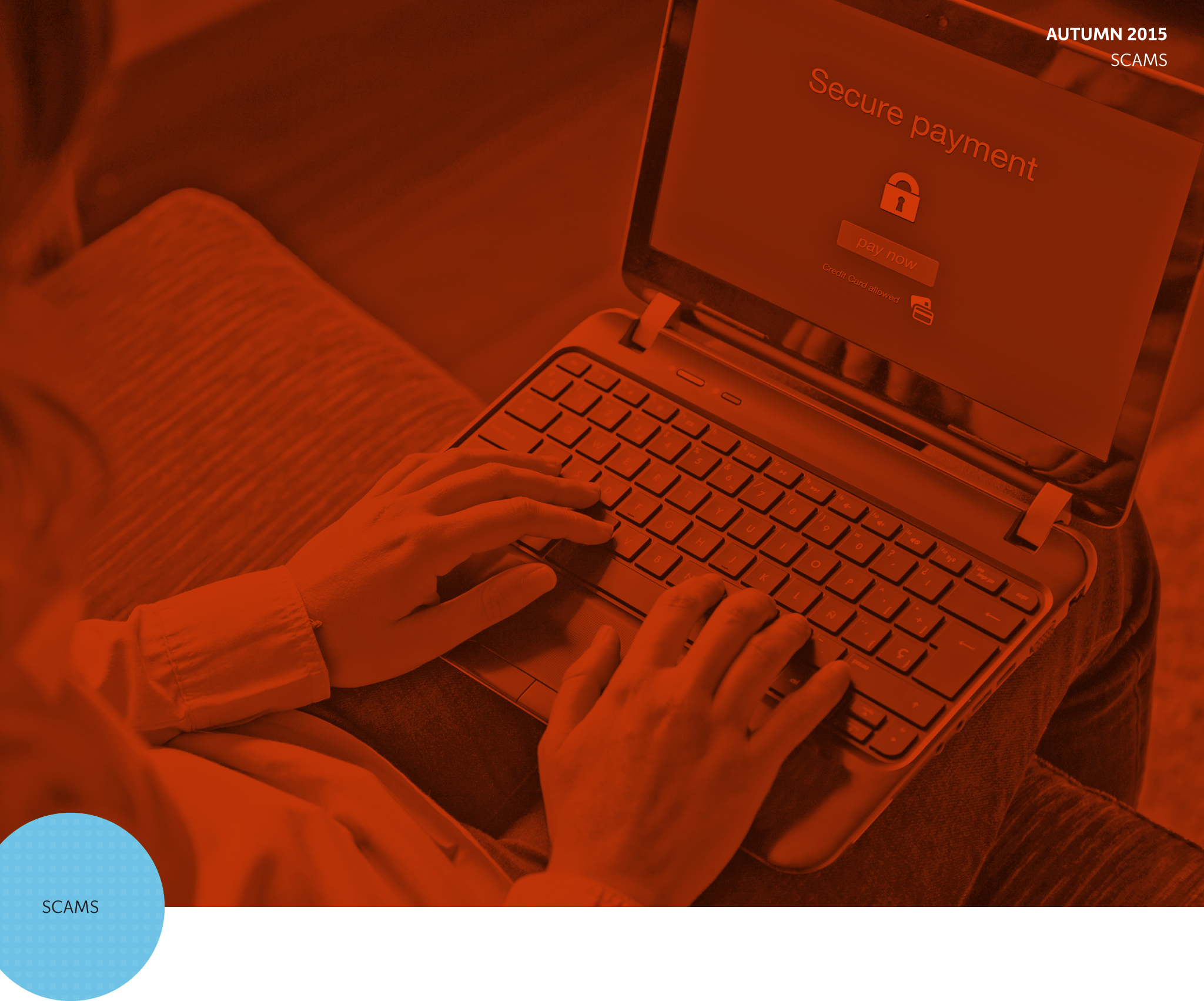











autumn 2015 SCAMS FRAUD IS bIg BUSINESS Enterprises are just as much at risk from fraud as consumers SCAMS Its not just consumers who are targeted by scammers fraud is costing UK businesses billions of pounds each year. Big business can afford to pay for fraud protection measures, but many small and medium-size concerns have to rely upon their own staffs vigilance and experience to spot scams. Fraudsters are finding ever more intricate ways to scam businesses, and this means business owners and their staff must keep up to date with all the latest scams and frauds. Traders who take payment for the goods they sell via PayPal are being targeted by criminal gangs. Fraudsters agree a price with the trader and offer to pay via PayPal. They then send the trader a bogus PayPal payment confirmation email. The trader, thinking that the item they are selling has been paid for, sends it to the buyer. In reality, no payment had been sent to PayPal. Traders wanting to confirm a PayPal payment should do so by logging into their account. Never trust an email! Businesses should look out for bogus invoices for goods or services they have never agreed to purchase, or counterfeit fInd out moRe Additional advice on how to invoices made to look like a genuine invoice from a supplier. avoid being scammed is available Some fraudsters, for example, send fake invoices for in the Little Book of Big Scams. advertising renewals, mocked up to look genuine. They may even include a copy of the advert cut out of a newspaper. The invoice might say that the due date for payment has passed or threaten that non-payment will affect the traders credit rating. Fraudsters also target businesses over the phone. Bogus publishers use carefully scripted telephone conversations to try to trick businesses into agreeing to pay for advertising in health or public safety booklets or magazines with little or no circulation, making the advertising essentially worthless. The callers may claim to represent the police, public health or charity organisations and may suggest the publication will be sent to local schools. Traders might even be given the impression that, by advertising in the publication they are helping to support a local initiative. In reality, these bogus publishers are not usually local at all. Finally, posing as customers, fraudsters are offering to pay for goods or services using forged or stolen cheques made out for more than the agreed price. Fraudsters ask the trader to bank the cheque and send the overpayment when the cheque clears, along with the goods. The banking system may show a bogus cheque as having cleared before a problem is identified, by which time the trader could have sent the overpayment back to the fraudsters. When the cheque is identified as fake, the entire value of the cheque is debited from the traders account, leaving them out of pocket. Credit: Simon Cripwell Image: David Molina G / shutterstock poWeRS of entRy Get to grips with what to expect when an officer calls on your business the powers of Entry code was developed to protect your rights, in accordance with Section 48 of the protection of freedoms act 2012. Its only 14 pages in length and worth a read, but below is a summary. the code applies to a wide variety of business sectors and it intends to minimise disruption to everyday operations. It will apply when police, environmental health and licensing officers, among others, call. the code does not replace or override powers of entry given to authorised officers in legislation, but it provides a framework around if, when and how these powers should be used. nor does it override existing statutory codes of practice, such as those issued in relation to the police and Criminal Evidence act, Food law (Code of practice) England, or Feed law Enforcement (Code of practice) England. the code requires that: l there should be a proper approval process for the exercise of powers l Consideration be given to whether or not the necessary objectives can be met by less intrusive means l authorities should ensure that all relevant persons are familiar with the Code l Exercise of powers should be impartial and fair at all times, cause as little disruption as possible to legitimate business operations and comply with any restrictions, for example, legally privileged material l any assistance that is required from an occupier of a premises must be clearly explained, detailing why it is required and what sanctions may apply for non-compliance l reasonable efforts should be made to carry out any inspection by consent and with notice unless this would defeat the object of the exercise l only reasonable and proportionate numbers of personnel should be present during any visit l officers should produce their identification and visit during reasonable hours l officers should provide the occupier with a notice of powers and rights that should contain specific information l If the visit is by consent, this must be informed consent and the occupier must be informed of: the purpose of the visit; what the powers of entry and associated powers are; and how these powers will be used l Complaints procedures should be explained in straightforward language, including how a copy of the Code could be obtained Credit: Carrie morris Image: Zygotehaasnobrain / shutterstock